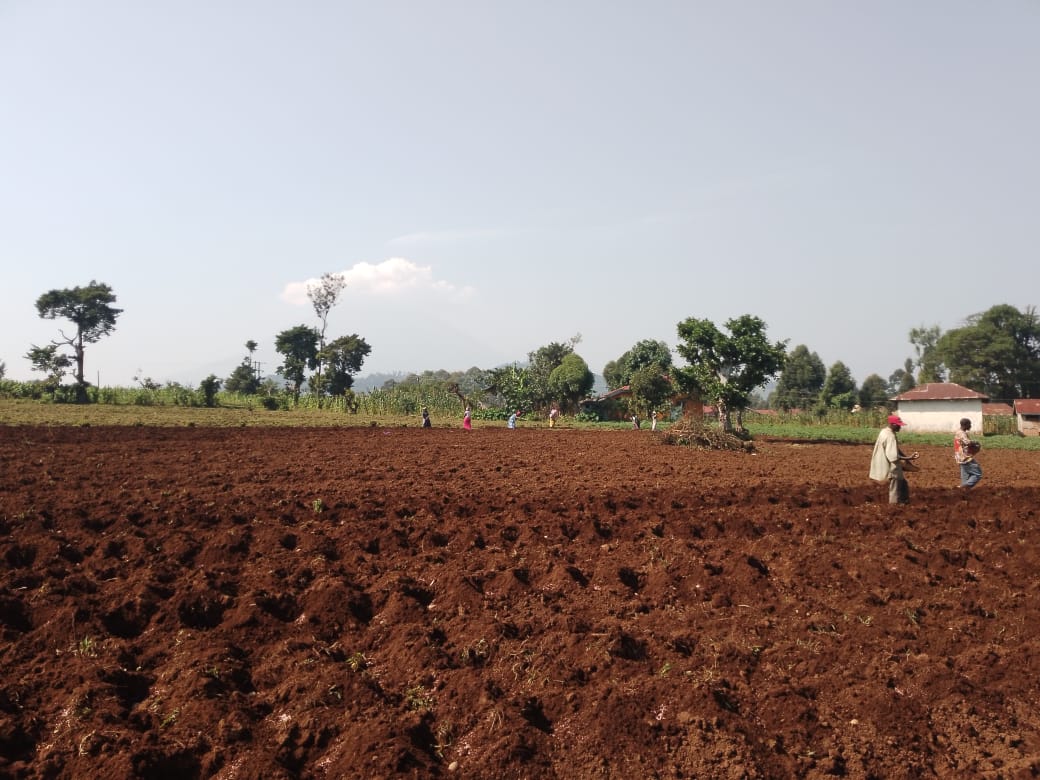n Kisoro District, a dynamic group of youth farmers is taking proactive steps to protect their potato crops from pests and diseases, ensuring healthier harvests and better yields. Recently, the group gathered for a community-led spraying event, where they worked together to apply environmentally friendly pesticides and fungicides to their potato fields. This initiative not only helps preserve the quality of their crops but also fosters teamwork and skill-sharing among young farmers.
Importance of Pest and Disease Control in Potato Farming
Potatoes are vulnerable to various pests and diseases, such as late blight, aphids, and bacterial wilt, which can significantly reduce yields and crop quality if left unchecked. Regular spraying is essential for controlling these threats, particularly during the wet seasons when pest populations and disease incidences tend to rise. By organizing and performing these spraying activities, the youth farmers are ensuring that their crops remain healthy and productive throughout the season.
Key Steps Taken by Youth Farmers for Effective Spraying
- Collaborative Planning and Resource Sharing
The youth farmers pooled resources to buy high-quality, safe pesticides and fungicides, splitting the costs among the group members. This collaborative effort made it affordable for each farmer to access essential inputs, even with limited individual resources. - Training on Safe Spraying Practices
Before starting, the farmers attended a brief training on safe pesticide use, led by a local agricultural expert. They learned how to measure, mix, and apply the chemicals accurately to avoid overuse and ensure effective results. Safety protocols were emphasized, including the use of protective gear like masks, gloves, and goggles. - Proper Equipment and Application Techniques
The group shared spray pumps and other tools, applying the pesticides evenly to avoid leaving untreated areas. They were taught about the right timing for spraying to maximize efficacy, typically during early morning or late afternoon when temperatures are lower, and winds are calm. - Integrated Pest Management (IPM) Practices
Alongside chemical control, the youth farmers incorporated Integrated Pest Management (IPM) practices, such as regular field scouting to identify early signs of pests and diseases. They also discussed using organic alternatives, crop rotation, and maintaining field hygiene to reduce reliance on chemical sprays. - Monitoring and Follow-Up
After the initial spraying, the youth farmers agreed to monitor their fields regularly and schedule follow-up sprays if needed. This proactive approach helps in managing any resurgence of pests or diseases, especially during peak seasons.
Benefits for Youth Farmers and Their Communities
- Enhanced Crop Yields: By managing pests and diseases, the youth farmers protect their potato crops from significant losses, leading to better yields and higher income.
- Skill Development: This spraying event helped young farmers build valuable agricultural skills, preparing them for a future in farming while promoting sustainable practices.
- Economic and Social Empowerment: As these youth farmers succeed, they are setting a positive example in their community, demonstrating the potential of agriculture as a viable livelihood for young people.
Fostering a Sustainable Farming Culture
Through initiatives like these, the youth farmers are embracing sustainable agricultural practices, building networks of support, and creating opportunities for shared growth. Their dedication to protecting and improving their crops is not only beneficial for their livelihoods but also contributes to the region’s food security and agricultural resilience.
As these young farmers continue to invest in their fields and knowledge, they are helping to transform the landscape of potato farming in Kisoro, paving the way for a sustainable and prosperous future in agriculture.




